Overview
Nuts are one of the most nutritious foods on the planet, and they have been part of the human diet for a long time. They are small but powerful. Every nut has a unique taste and a slightly different nutritional profile, but all nuts are plant-based protein sources, healthy fats, and essential vitamins and minerals, so they’re all good for you. Here is the list of some of the healthiest nuts to add to your diet.
Pistachios
It is full of protein and other essential nutrients. Also, they are a good source of healthy fats and antioxidants. You’ll see that it’s a seed from the pistachio tree if you look at it. People think of it as a nut because of its looks and feels.
A study found that eating pistachios can help lower blood pressure and improve endothelial function, which could help people avoid heart problems.
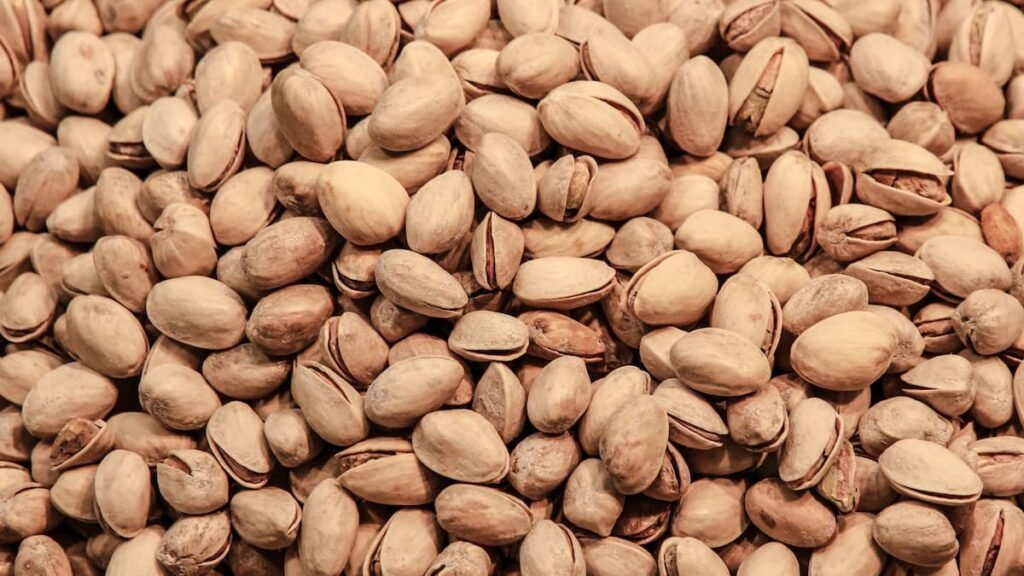
Moreover, according to research, people with type 2 diabetes who consumed pistachios every day for a month had considerable improvement in cholesterol and triglycerides.
Those with pre-diabetes saw an improvement not just in insulin resistance but also in inflammation indicators. Inflammation-reducing phytochemicals, such as flavonoids and flavone phenols, may be responsible for the anti-inflammatory properties of pistachios.
Besides, they have the highest concentration of vitamin B6 of any nut. The molecule hemoglobin, which transports oxygen in red blood cells, and blood sugar control are both dependent on vitamin B6. Moreover, one ounce of pistachios has more potassium than half a banana, making them an excellent source of potassium.
According to the USDA database, every 100 grams of pistachios has 541 calories.
Walnuts
According to history, walnuts have been around for 10,000 years. Also, walnuts are the healthiest nut by far due to their high concentration of phytochemicals, including:
- Phenols
- Phytates
- Phytosterols
- Omega-3 fatty acids, which have anti-inflammatory properties, are abundant in these foods.
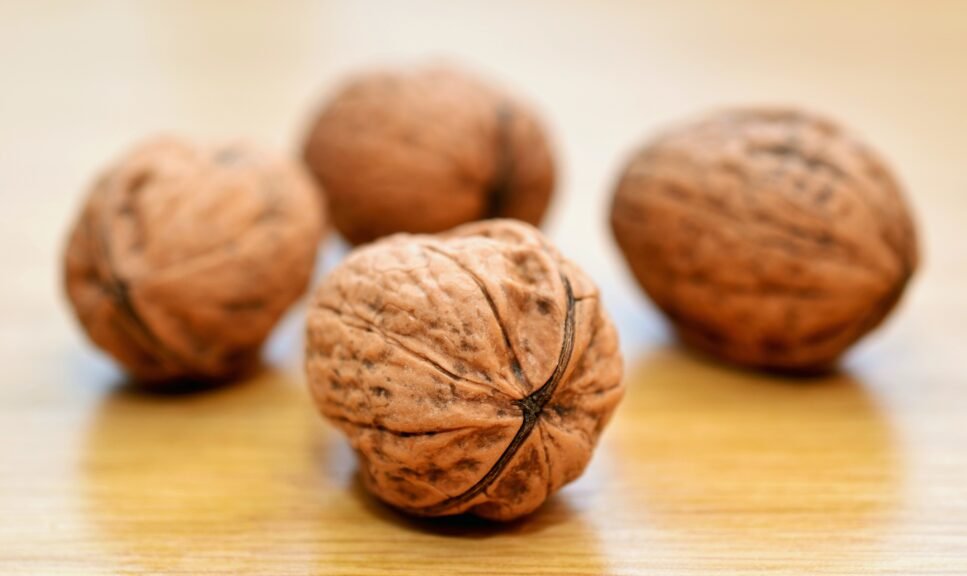
According to the American Journal of Clinical Nutrition, alpha-linoleic acid, an omega-3 fatty acid found in walnuts, is linked to:
- Bone health
- Cardiovascular disease prevention
- Diabetes prevention
Besides, walnuts also include iron, which helps red blood cells carry oxygen, selenium, which may help prevent cancer, vitamin E (an antioxidant), and a few B vitamins.
Triglycerides (fat in the blood that raises the risk of heart disease) can be lowered by eating walnuts. Furthermore, Omega-3 fatty acids present in walnuts are essential for brain function. Researchers found that walnuts also boost the gut microbiome, a microbial community of billions of microorganisms or bacteria that reside in the gastrointestinal system.
100 g of walnuts contain 654 calories.
Cashews
Cashews are a famous snack nut, and they’re as nutritious as they are tasty. In addition to the anti-inflammatory benefits of phytates, cashews include phosphorus, magnesium, copper, manganese, and the necessary minerals. In a study, cashews have been shown to lower LDL (bad) and total cholesterol in men and women who eat between 16 and 36 cashews per day. Besides, American Journal of Clinical Nutrition researchers found that cashews increase blood lipids.
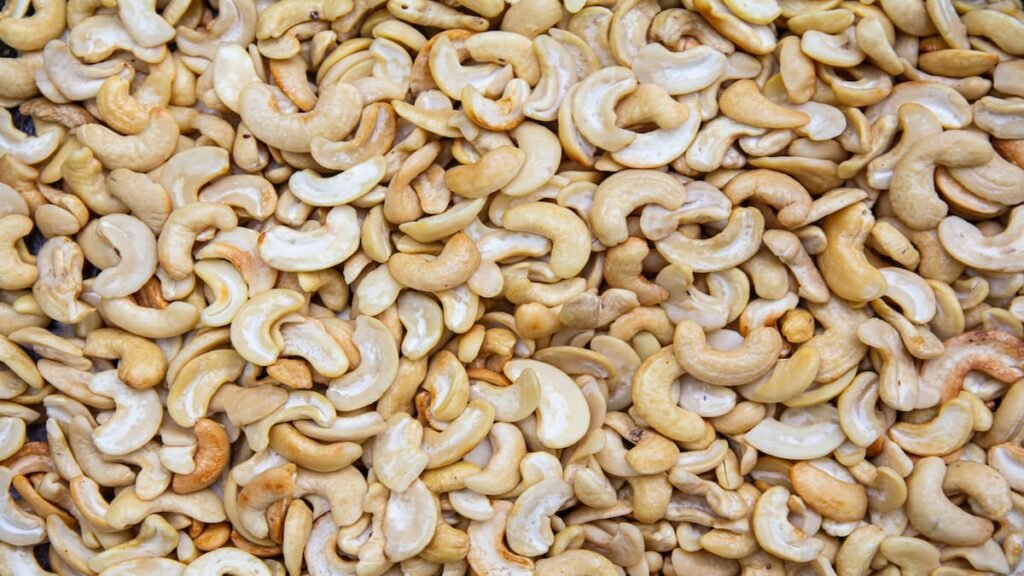
There are around 163 calories in each serving of cashews (28 g-1 oz).
Almonds
Almonds, which are related to peaches, are grown in large quantities in California, making it the world’s leading producer of almonds. For centuries, they’ve been hailed as one of the planet’s healthiest nuts (and other foods). In a 12-week study, obese people who consumed 15 percent of their calories from almonds observed:
- Weight loss
- Reduction in belly fat
- Drop-in blood pressure.
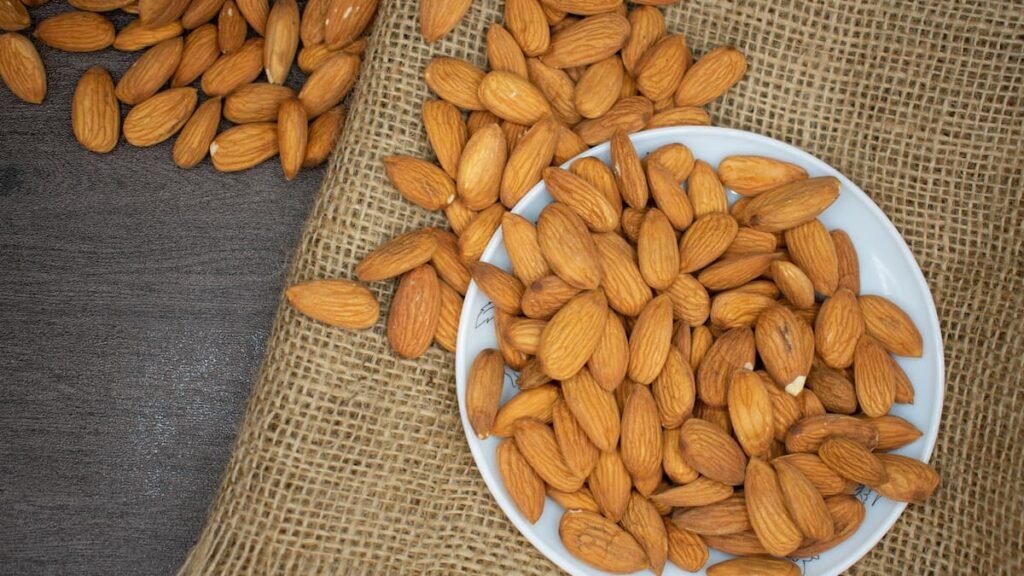
Another study from 2017 found that consuming almonds for just three weeks:
- Improve glucose management
- Lower cholesterol and triglyceride levels
- Decrease waist in persons with diabetes.
Vitamin E, calcium, magnesium, and folate are also found in almonds. You can snack on the almonds as is or make almond butter, flour, and milk to reap the nutritional benefits of almonds. The vitamins and minerals make them an excellent choice for individuals allergic to peanuts. Almonds contain 667 calories per 100 grams.
Peanuts
Peanuts, which are legumes rather than nuts, have a nutritional profile similar to that of other nuts and other health advantages. It’s good to eat peanuts because of their high levels of niacin, an essential B vitamin, and manganese, which helps the body metabolize cholesterol.
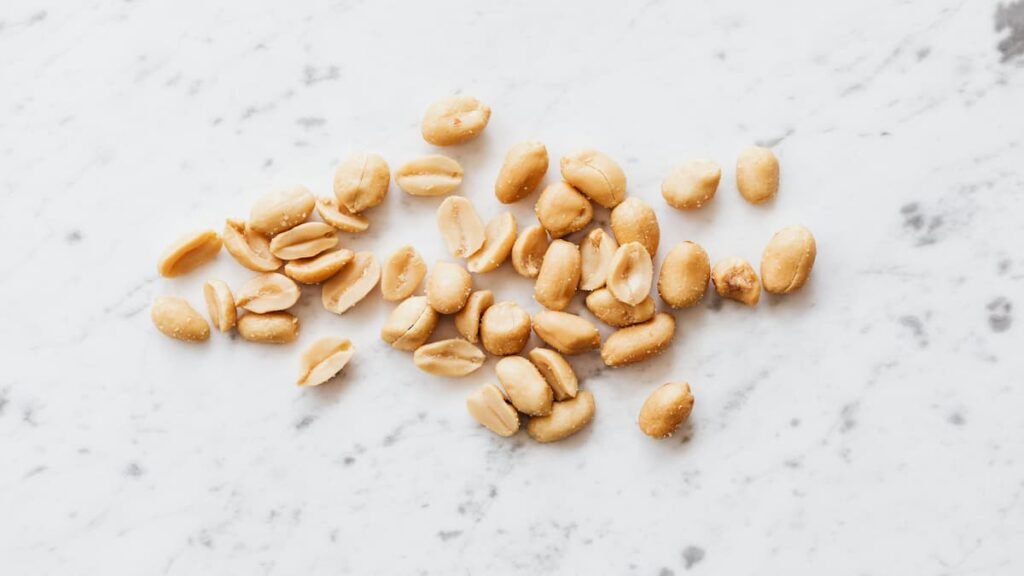
In addition, peanuts are environmentally friendly since they grow in the ground rather than on trees. As a bonus, nitrogen is organically replenished and enriched in the soil. A pleasant stress reliever may also help you calm down and eat more mindfully.
One of the most prevalent food allergies in humans is due to peanuts. Anaphylaxis can be life-threatening for many persons with peanut allergies. Consult a Nutritionist before adding this nut to your diet.
There are a variety of polyphenols, antioxidants, flavonoids, and amino acids found in peanuts. All of these components positively affect human health. Raw peanuts weighing an ounce (28.35 grams) contain around 162 Calories in one serving.
Healthiest Nuts – Frequently Asked Questions
If you weigh out the macronutrients of the different types of nuts, macadamias and pecans contain the most calories per ounce and the least protein and fat.
Cashews have 163 calories per 100 gm, compared to 654 for walnuts. In addition, their protein content is higher, and their fat content is lower.
Almonds are better for you despite their greater fat content since they contain more unsaturated fats, and saturated fat is higher in cashews.
In their natural, uncooked condition, cashews contain a natural poison known as urushiol. The toxin is located in the cashew shell and can spread to the outside of the nut.
Bottom Line
If you want expert advice on the nuts that would be the healthiest for you, you can consult a specialist. Maybe one healthiest nut is suitable for you while the other is not; it’s always better to consult with a specialist through the best healthcare apps online.
